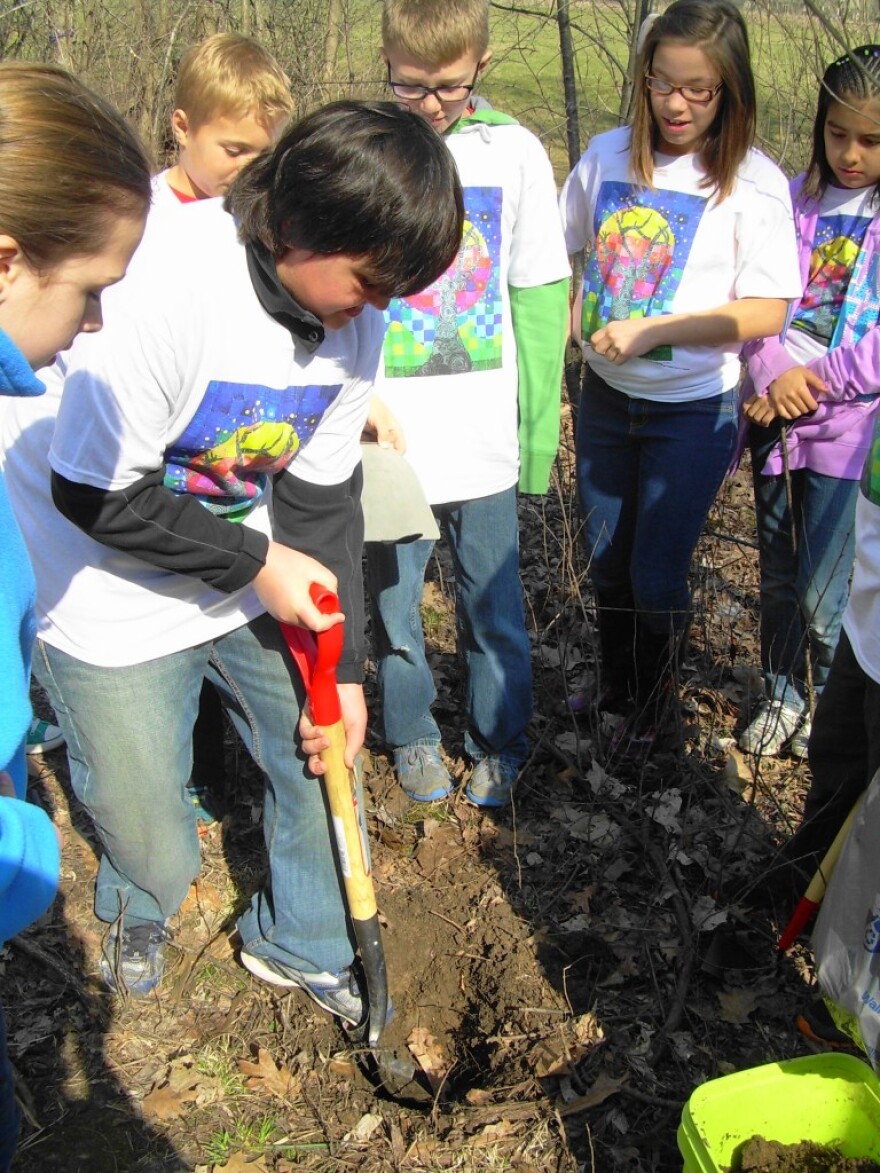Conservation education dates back to 1935 in Wisconsin. That’s when state law required that grade and high school students learn about natural resources.
In 1983, environmental education was incorporated into Wisconsin Administrative Code, requiring: “that every school district develop and implement a written, sequential curriculum plan incorporating instruction in environmental education into all subject area curriculum plans, with the greatest emphasis in plans for art, health, science, and social studies education.”
Deb McRae is among those who say environmental education will suffer under Gov Walker’s budget plans.
She has directed Wehr Nature Center since 1998. Over the years, Wehr has received grants from the Wisconsin Environmental Education Board.
The Legislature and former Gov. Tommy Thompson established the board in 1990. Its members represent public and private institutions and businesses; and the board is charged with providing leadership for environmental education.
McRae says a recent grant fueled creation of a natural area at a nearby elementary school in Franklin.
“They had some land attached to the school; nobody took care of it. So we wrote the grant with the school and we went over and helped them with our resources and their resources to clear up all the buckthorn, garlic mustard and all the invasive species – the kids did the work,” McRae says.
McRae says the project earned School Forest status.
“Which then lets them have access – if there’s still funding – to further grants to help them make it into a classroom for their school. It’s been a wonderful process. The first kids that started would now be in 7th grade – they still come back and bring their parents and come and visit and are very protective of it. They want to make sure kids coming up through the elementary school take good care of it,” McRae says.
Gov Walker plans to eliminate the Board, as part of his overall goal of streamlining government, and the grants it administers.
McCrae says environmental educators are accustomed to stretching shrinking funds and looking for new partners. She fears a time when commitment is spread too thin.
“Everything is connected together like a giant spider web. And it just gets weaker with every snippet that comes out. That then takes the quality away, because if you lose so many pieces, you just can’t maintain that quality that you want to have – that excellence that we all strive for,” McCrae says.
Mary Nohl sees environmental education through a different lens.
She has immersed herself in Wisconsin lakes. As a kid, her family summered on one near Crivitz.
Fifteen years ago, she and her husband built a house on a small lake in Waukesha County.
Nohl is also a journalist, and at one time, she dug into the issue of lake management, including of her own.
She learned how special and expansive the wetland is, that butts up to her lake.
“ It’s actually a 250-acre wetland; there is a deep-hole pond that’s five acre, that is actually a spawning bed for Northern. And then I'm reading there are six or seven endangered species in this wetland. I thought, holy cow,” Nohl says.
It’s information she stored away and forgot about, until a few years ago, when she learned the state planned to remove a dam downstream.
Nohl envisioned the level of her lake dropping, and the wetland drying up.
Despite her investigative prowess, Nohl didn’t know where to turn. So she contacted a nonprofit called Wisconsin Lakes.
“And one of the things they advised was you need to reactivate your lake district, it hadn’t met in over two years,” Nohl says.
The district brought in a hydro geologist, and Nohl says he confirmed the area as a precious ecosystem.
All the players then sat down at one table.
“We packed the town hall twice. We could show that it was going to cause serious environmental damage,” Nohl says.
In the end, the state replaced the dam.
Every year, since 1999, the nonprofit Nohl called upon - Wisconsin Lakes has used an annual state grant of $200,000 to provide education and outreach.
Gov Walker’s budget eliminates the grant.
Nohl believes the loss would put the organization’s future in jeopardy.
“That citizen training and involvement and getting all of that good work done by volunteers who care, and have become informed, that could go away,” Nohl says.
Nohl predicts less dialogue and more litigation.

Emily Brown represents the Wisconsin Association for Environmental Education. The 300-member professional group formed in 1962.
“I chose to be part of environmental education and this organization because of the leadership that Wisconsin has put forward, we are known throughout the nation and the world for our leadership in environmental education for setting the bar very high,” Brown says.
She says her job is to help inspire the next generation of environmental stewards.
Brown believes if the proposed 2015-2017 budget passes it could cause dangerous ripple effects.
“Our environment is not something that can be replaced, our natural areas are not something that can just be substituted in and out of a budget. Once the damage is done, it will take years to repair, if ever,” Brown says.





